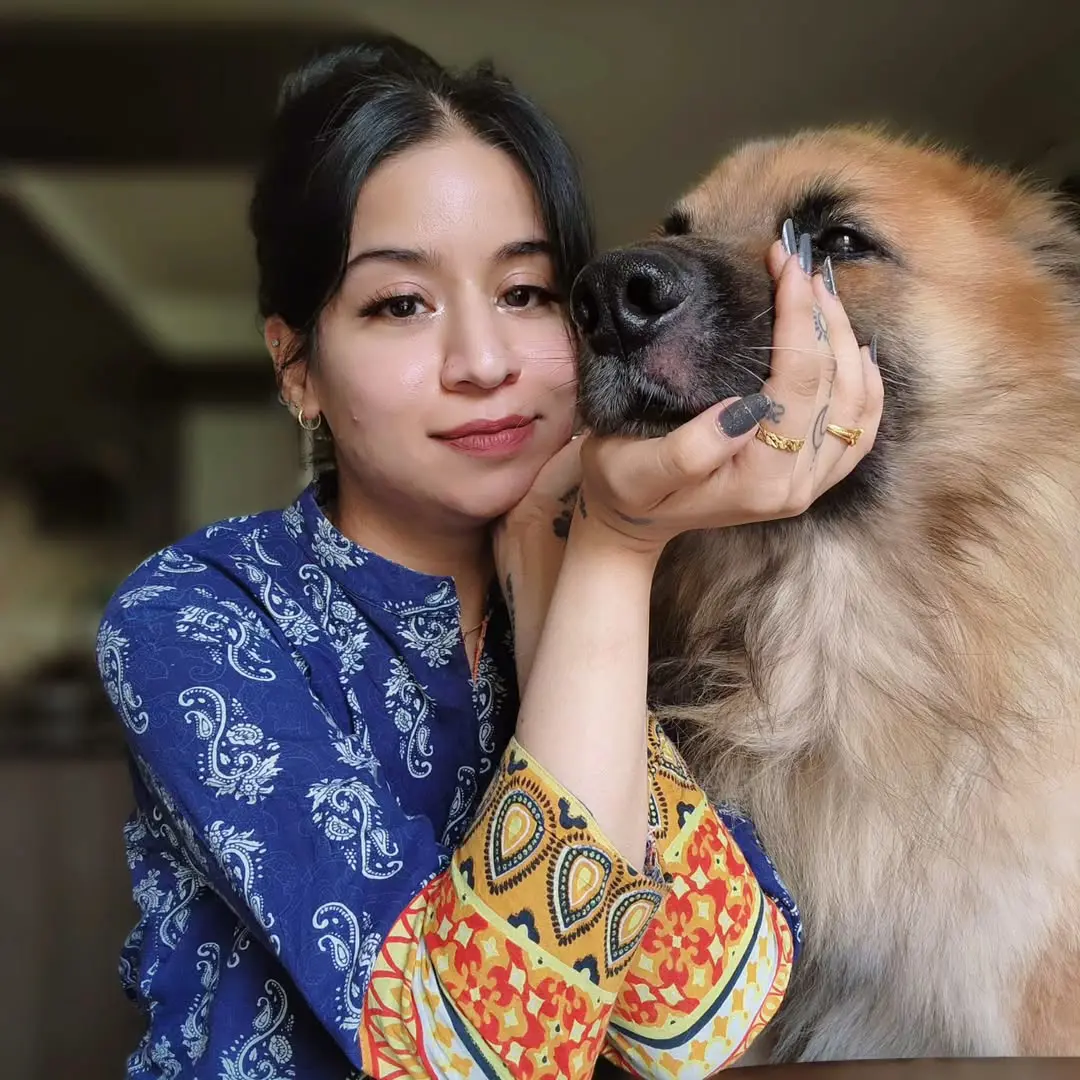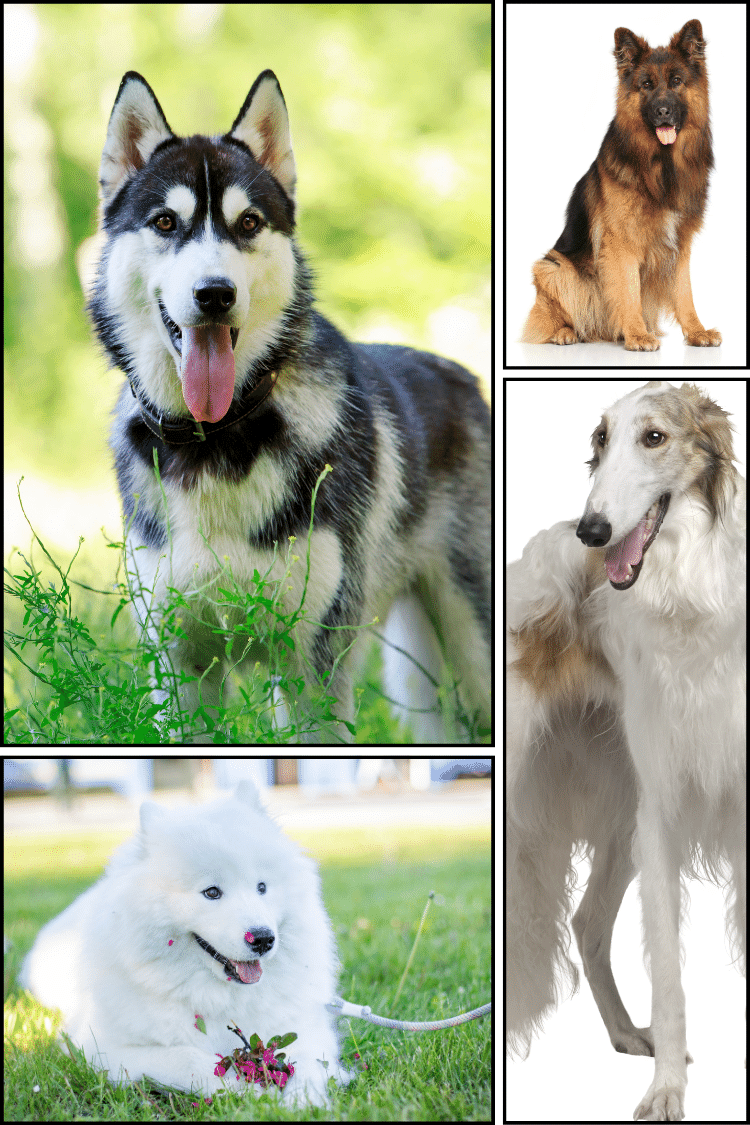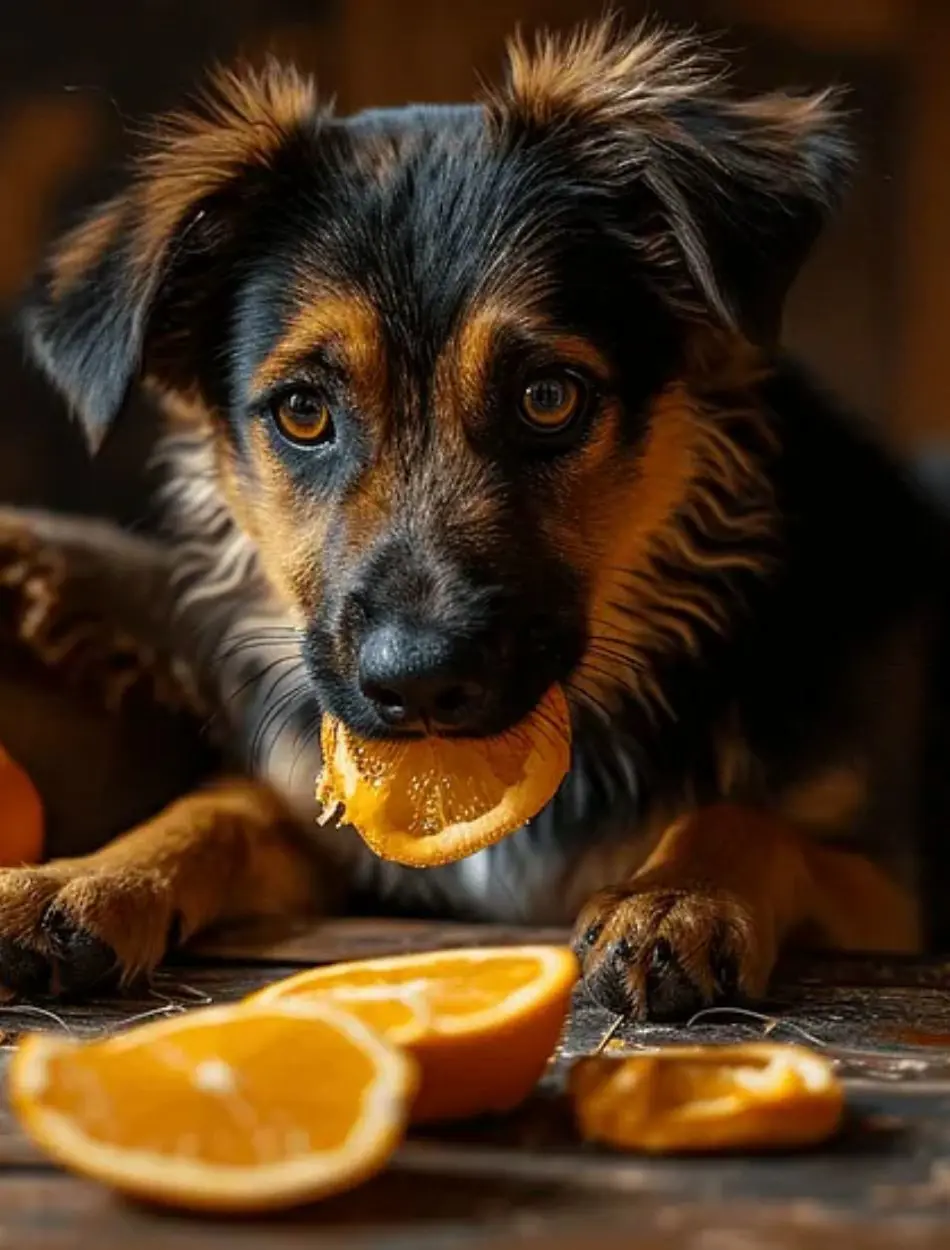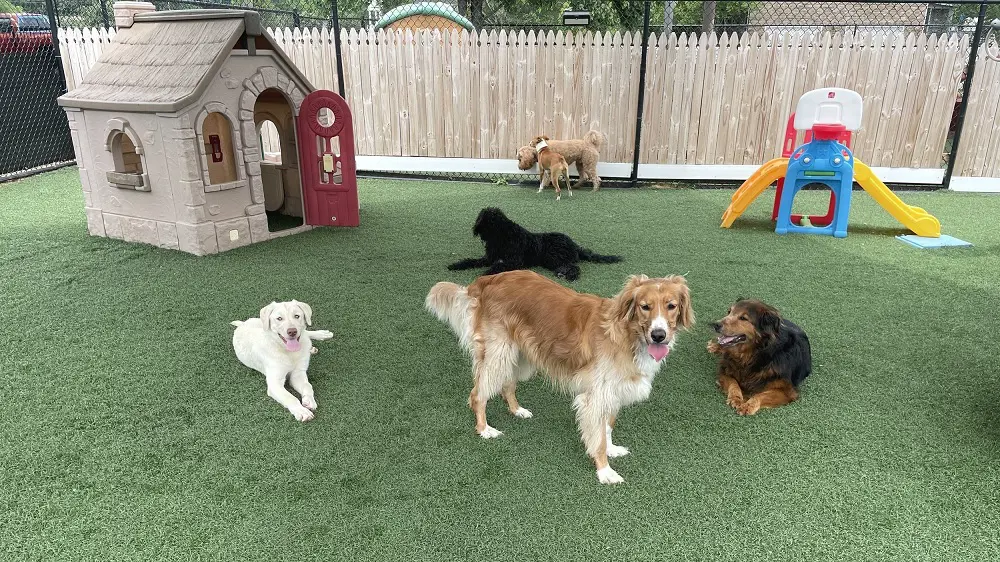Dalmatian Dog Breed Profile And Characteristics
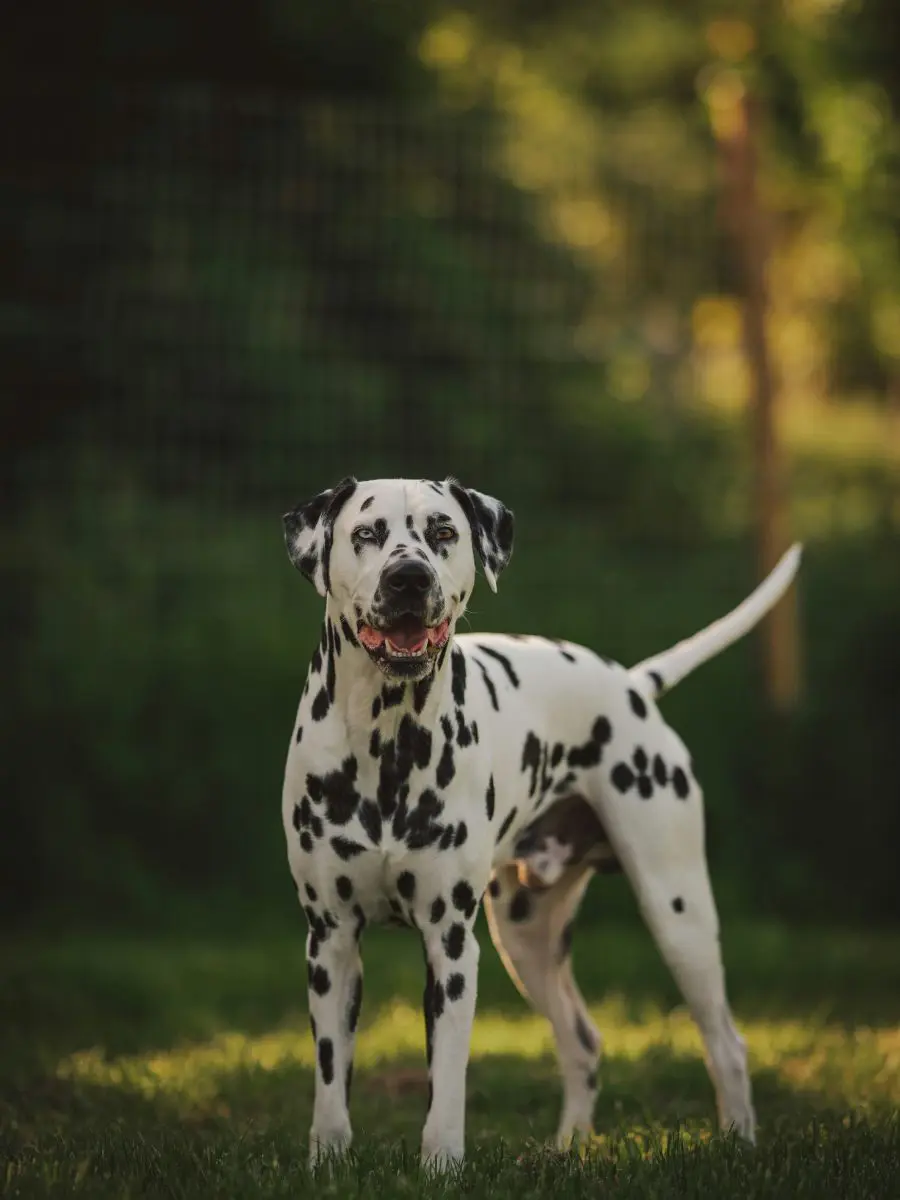
Dalmatian is a unique and instantly noticeable breed known for its one-of-a-kind coat pattern of black or liver spots on a white background. Beyond its appearance, the Dalmatian holds a rich history, versatile skills, affectionate, highly intelligent and a charming temperament that has made it a beloved companion, athlete, and working dog.
Breed shreds heavily, and frequent brushing is required to control shredding. Originally bred as a hunting dog, it was also used as a carriage dog in its early days.
Overview
- Lifespan: 10-13 years
- Weight: Adult 23-25 kg
- Height: Adult male stands at 58-61cm and Adult female stands at 56-58cm
- Color: Spotted coats and spots can be black or liver on a white background
- Size: Large
- Personality: Energetic, Playful, Intelligent, Affectionate, Protective and Sociable
Dalmatians are large-sized dogs with a distinctive coat pattern characterized by dense, short hair with spots. The spots can be either black or liver-colored (brown) and are well distributed over the entire body, including the ears and the head.
Short, dense, and sleek, requiring minimal grooming but regular brushing to minimize shedding. Dalmatians have expressive eyes that are usually dark brown or blue. Their ears are medium-sized and set high on the head, usually dropping down to the sides.
Dalmatian has a moderately long tail with tapering and is carried with a slight upward curve. They got well muscled and athletic with a strong, sturdy body and a deep chest
History And Origin
Its history is believed to trace back several centuries to the region of Dalmatia, now part of Croatia, while the early Dalmatians existed as far back as the 18th century. They gained prominence as carriage dogs, alongside horse-drawn carriages to protect themselves and their occupants, and became essential companions to travelers by providing security during long journeys.
In the 19th century, Dalmatians were used as firehouse mascots and firefighting dogs. Their natural attraction for horses made them ideal for running alongside fire engines, clearing the way, and guarding equipment after this association they became iconic and solidified their status as symbols of bravery.
Characteristics and Rating
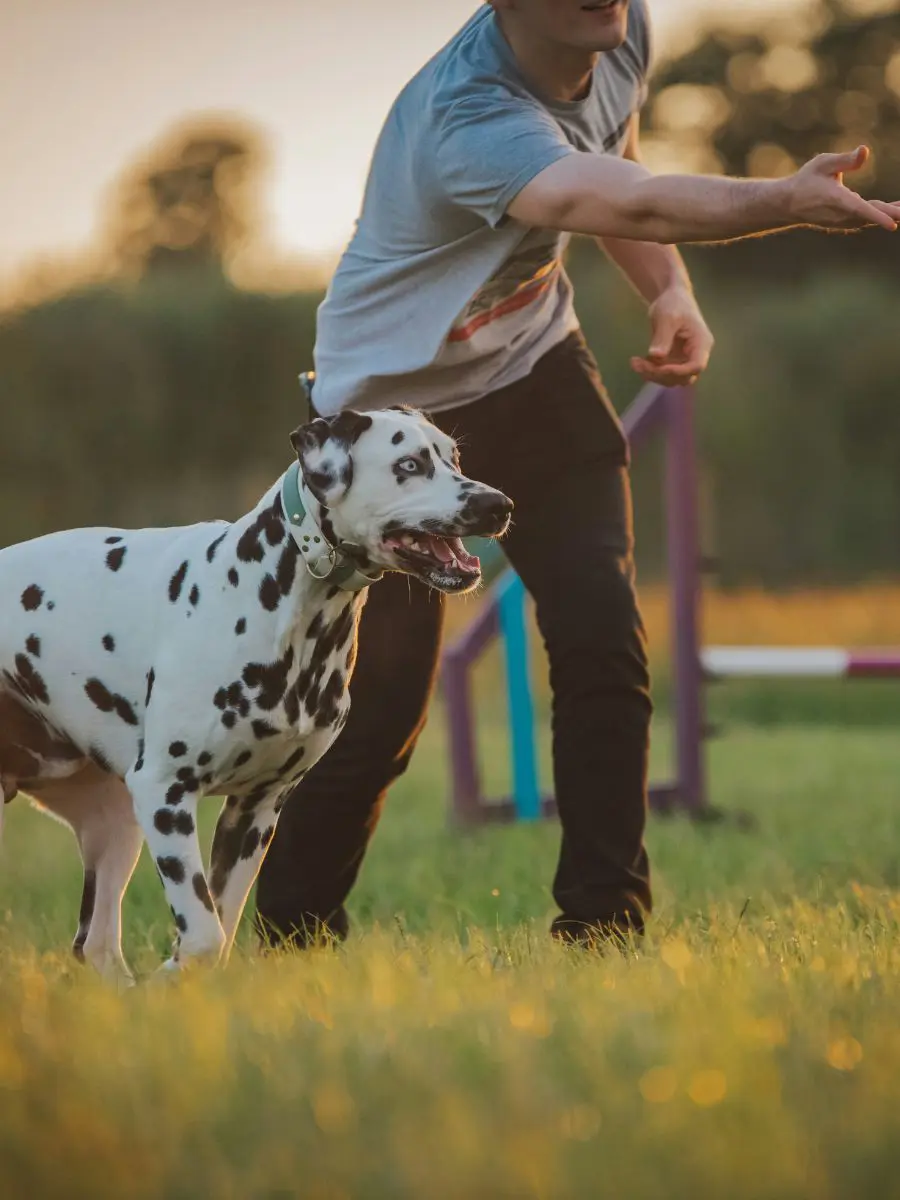
Here are the characteristics ratings of Dalmatian Dog Breed in the table (out of 5)
| Family Friendly | 5 |
| Exercise Needs | 5 |
| Easy To Train | 5 |
| Tolerates Being Alone | 3 |
| Like Other Pets | 4 |
| Energy Level | 5 |
| Grooming Needs | 4 |
| Shedding | 5 |
Affection: Dalmatians are known for their fond nature towards their families and they thrive on human companionship and enjoy being involved in domestic chores.
Playfulness: Their affectionate nature extends to playtime as well, while they love interactive games with their owners, which not only strengthens their bond but also satisfies their need for mental stimulation and physical activity.
Alertness: Dalmatians are naturally alert and make good watchdogs, often being vigilant and quick to respond to their surroundings.
Exercise Needs: They require regular exercise to maintain their physical and mental welfare, including daily walks, runs, and play sessions.
Trainability: Dalmatians can be independent-minded, so consistent and patient training is necessary to harness their potential and further develop good manners and social skills.
Dalmatian Dog Breed Personality Traits
Dalmatians are friendly and outgoing, but if they are insufficiently exercised they can become hyperactive and difficult to live with. They are dedicated and loyal and always want to please; they enjoy company and clowning about so can make great dogs for an active family, however, their strength and stamina, and need for almost endless exercise and stimulation.
They can sometimes be too much of a challenge for unprepared owners. A unique blend of attributes makes them both captivating and challenging.
Energetic: Dalmatians have high energy levels and require regular exercise and mental stimulation to stay happy. They enjoy activities like running and playing fetch.
Intelligent: Dalmatians are smart dogs that enjoy learning new tricks and tasks. They respond well to positive strengthening training methods and prosper on mental challenges.
Independent: Delmatians can be independent-minded, they may display a stubborn at times due to which they require patient and consistent training.
Playful: Their playful nature extends throughout their lives, making them entertaining companions who love interactive games and activities with their families. This breed thrives on companionship and enjoys participating in various activities that stimulate both their mind and body.
Loyalty: Dalmatians are loyal dogs, they often exhibit protective behaviors towards their family members. They can be watchful and alert, which stems from their historical roles as guardian companionship.
Nutrition And Diet
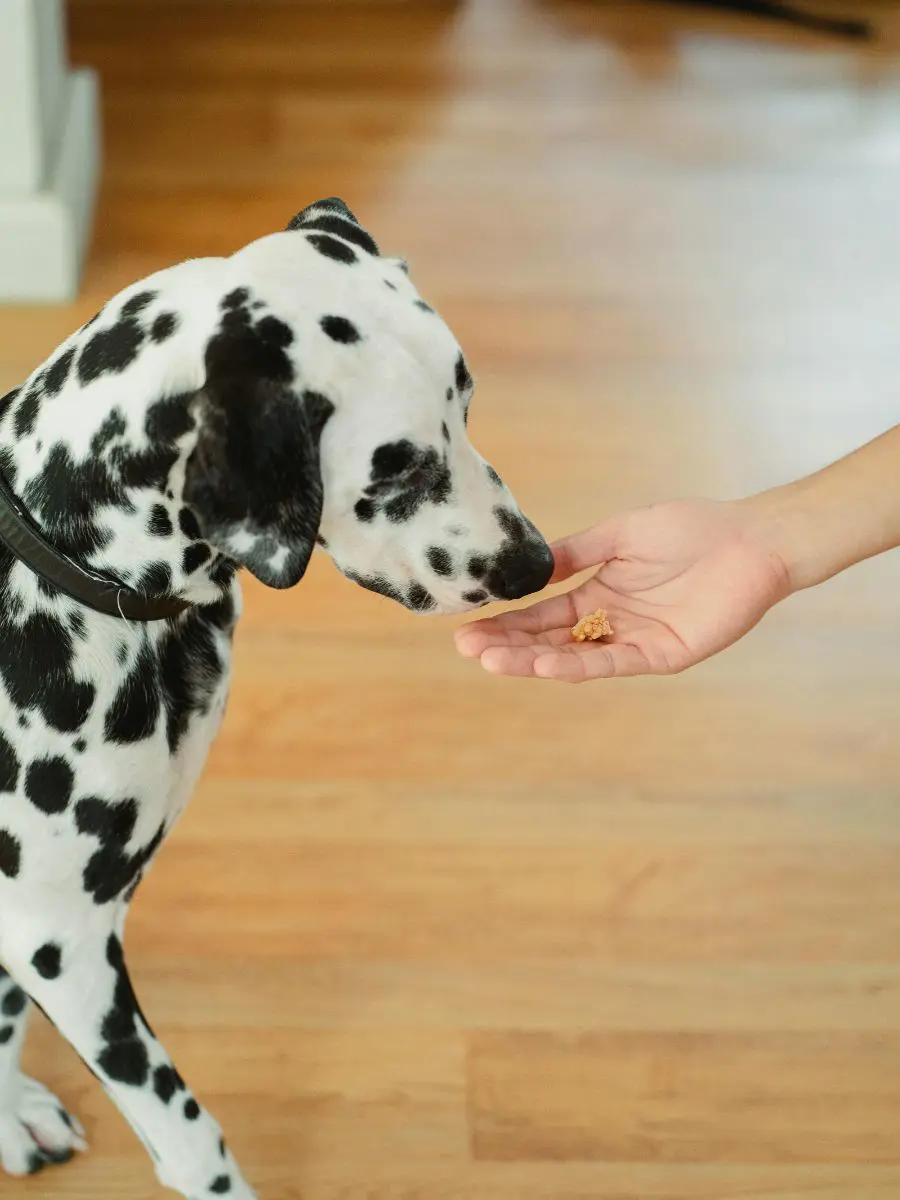
The nutrition of a Dalmatian is crucial to their overall health and well-being, particularly due to their unique dietary requirements. By carefully selecting and monitoring their diet, Dalmatians can thrive and maintain good health throughout their lives.
Ensure they receive proper nutrition tailored to their specific requirements is essential for preventing health issues.
Here's a guide to ensure your dogs get right food and feeding schedule:
Dietary Needs
- Dalmatians require a moderate to high-quality protein diet to support their active lifestyle and muscle maintenance.
- Provide a diet that contains low purines,
- Adequate hydration is crucial for Dalmatians to prevent urinary stones so, provide access to fresh, clean water at all times to encourage regular drinking
- Ensure a balanced diet that includes essential nutrients such as vitamins, minerals, and omega fatty acids.
Feeding Schedule
Puppy Feeding
Dalmatian puppies should be fed multiple small meals throughout the day to support their rapid growth and metabolism. Upto 6 months old, 3-4 small meals per day to support their rapid growth.
Adult Feeding
Adult Dalmatians generally do well with two meals per day. Some may benefit from splitting their daily portion into three smaller meals.
Portion Control
Portion control is essential for maintaining a healthy weight and overall well-being in Dalmatians, especially considering their tendency to gain weight if overfed. Look after the guidelines that suggest the amount of food based on your dog's weight and age.
Treats
When selecting treats for Dalmatians, it's important to choose options that are not only tasty but also safe and appropriate for their unique dietary needs. Consider treats that have a limited number of ingredients, which can help minimize the risk of triggering allergies or digestive issues.
Fresh Water
Ensure that fresh, clean water is available to your Dalmatian at all times. This is essential for maintaining proper hydration, which supports overall bodily functions and helps prevent urinary tract issues.
Dalmatian Dog Breed Care
Caring for a Dalmatian involves several key aspects to ensure their health, happiness, and well-being. Due to their high energy levels, Dalmatians require substantial physical activity. Socialization and a properly balanced diet are considered key components of Dalmatian care.
Exercise
Dalmatians are energetic dogs that need regular exercise. Aim for at least 1-2 hours of physical activity daily, which can include brisk walks, jogging, playtime, or agility training. Also, Provide mental stimulation through interactive toys, puzzle feeders, and training sessions to keep them engaged and prevent boredom.
Grooming
Dalmatians have short, dense coats that they shed year-round. Brush their coat weekly to remove loose hair and minimize shedding.Bathe them occasionally using a mild dog shampoo to keep their coat clean and free from dirt and debris. Also, clean their ears regularly and brush their teeth several times a week to prevent dental issues.
Training
Early and consistent training helps manage their intelligence and energy. Also, use positive reinforcement techniques such as treats and praise.
Common Health Issues
Dalmatians are generally healthy dogs, but like all breeds, they can be prone to certain health issues including:
Urate Stones
Dalmatians have a hereditary tendency to form urate due to their unique uric acid metabolism. These stones can develop in the urinary tract, leading to discomfort, difficulty urinating, and potential blockages if left untreated.
Deafness
Dalmatians are known to have a higher incidence of inborn deafness compared to other breeds. It can affect one or both ears and may be present from birth or develop gradually over time. It can vary in severity, some may have partial hearing loss while others may be completely deaf. Early detention is important and one should observe the signs carefully.
Skin Allergies
Some Dalmatians may be prone to skin allergies, which can manifest as itching, redness, hot spots, and hair loss. Allergies can be triggered by environmental factors, food ingredients, or flea bites. Sometimes these breeds can develop allergies in their diet, such as protein, grains, or artificial additives which include gastrointestinal and skin issues.
Hip Dysplasia
Hip dysplasia is a skeletal condition that commonly affects Dalmatians dog breeds. It occurs when the hip joint forms abnormally during the growth period, causing instability and eventual degeneration of the joint. The condition can lead to arthritis, pain, and reduced mobility as the dog ages. Early detection is crucial for managing hip dysplasia in Dalmatians.
Hyperuricemia
Hyperuricemia in Dalmatians refers to elevated levels of uric acid in the blood, a condition that is closely linked to their unique metabolism. Dalmatians have a genetic predisposition where they lack the ability to efficiently metabolize uric acid, leading to higher concentrations in their bloodstream. This requires careful management and treatment as it causes discomfort and difficulty in urinating.
Eye Disorder
Dalmatians are prone to several eye disorders that can affect their vision and overall eye health. One common issue is cataracts, which involve the clouding of the lens inside the eye, leading to blurred vision or blindness if untreated. Cataracts can develop due to genetics, aging, or underlying health conditions. Regular and early checkups are essential for early detection and management.
Obesity
Dalmatians are they are prone to gaining weight if their diet and exercise regimen are not carefully monitored. This breed's tendency towards obesity is influenced by factors such as their metabolism, activity level, and dietary needs. By managing weight through proper diet, regular exercise, and veterinary care, Dalmatian owners can help their pets maintain a healthy body condition and reduce the risk of obesity-related health complications.
Thyroid Issues
Hypothyroidism is an underactive thyroid gland that may occur in Dalmatians and may lead to symptoms such as weight gain, lethargy, and skin problems. It can also disrupt the dog's metabolism and can lead to an impact on its overall health and well-being. Dogs with hypothyroidism often exhibit reduced energy levels and increased tiredness, showing less interest in physical activities.
What To Expect
Dalmatian owners must be prepared to be covered in shed hair, as these breeds shred a lot of hair. You should also be capable of extremely long and active daily walks and plenty of training. They love older children or child-free homes as long as someone is home most of the time.
These breeds are known for their playful nature throughout their lives, expect them to enjoy games, fetch, and interactive play with you and other family members. Expect them to be very attentive to their surroundings and potentially act as watchdogs by alerting you to any unusual activities.
Where To Buy Or Adopt Dalmatian Dog Breed
Dalmatian Dog Breed can be acquired from breeders who priotize heath, temperament, and adherence to breeding standards. The Dalmatian Club of America and other reputable kennel clubs can provide a list of breeders. Also ensure that they have conducted health screenings and provided proper socialization for puppies.
consider adopting a Dalmatian from a rescue or shelter where many specialized organizations rescue specific breeds, including Dalmatians. These dogs are often in need of loving homes and adoption fees typically cover vaccinations, spaying/neutering, and sometimes microchipping.
Some of the famous websites like Petfinder, Adopt-a-Pet, and local animal shelters often list Dalmatians available for adoption. These platforms allow you to search based on location, age, and other preferences.
Top Lists
